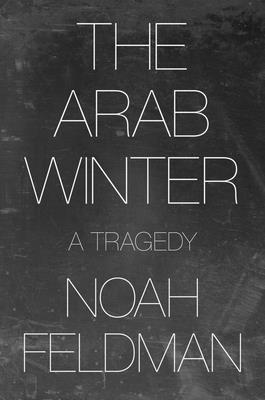Expedite your nonfiction book discovery process with Readara interviews, summaries and recommendations, Broaden your knowledge and gain insights from leading experts and scholars
In-depth, hour-long interviews with notable nonfiction authors, Gain new perspectives and ideas from the writer’s expertise and research, Valuable resource for readers and researchers
Optimize your book discovery process, Four-to eight-page summaries prepared by subject matter experts, Quickly review the book’s central messages and range of content
Books are handpicked covering a wide range of important categories and topics, Selected authors are subject experts, field professionals, or distinguished academics
Our editorial team includes books offering insights, unique views and researched-narratives in categories, Trade shows and book fairs, Book signings and in person author talks,Webinars and online events
Connect with editors and designers,Discover PR & marketing services providers, Source printers and related service providers

The Arab Winter: A Tragedy
History > Middle East - General
- Princeton University Press
- Hardcover
- 9780691194929
- 8.6 X 5.7 X 1 inches
- 0.95 pounds
- History > Middle East - General
- (Single Author) Asian American
- English
Readara.com
Book Description
A New York Times Book Review Editors' Choice
Why the conventional wisdom about the Arab Spring is wrong
The Arab Spring promised to end dictatorship and bring self-government to people across the Middle East. Yet everywhere except Tunisia it led to either renewed dictatorship, civil war, extremist terror, or all three. In The Arab Winter, Noah Feldman argues that the Arab Spring was nevertheless not an unmitigated failure, much less an inevitable one. Rather, it was a noble, tragic series of events in which, for the first time in recent Middle Eastern history, Arabic-speaking peoples took free, collective political action as they sought to achieve self-determination.
Focusing on the Egyptian revolution and counterrevolution, the Syrian civil war, the rise and fall of ISIS in Syria and Iraq, and the Tunisian struggle toward Islamic constitutionalism, Feldman provides an original account of the political consequences of the Arab Spring, including the reaffirmation of pan-Arab identity, the devastation of Arab nationalisms, and the death of political Islam with the collapse of ISIS. He also challenges commentators who say that the Arab Spring was never truly transformative, that Arab popular self-determination was a mirage, and even that Arabs or Muslims are less capable of democracy than other peoples.
Above all, The Arab Winter shows that we must not let the tragic outcome of the Arab Spring disguise its inherent human worth. People whose political lives had been determined from the outside tried, and for a time succeeded, in making politics for themselves. That this did not result in constitutional democracy or a better life for most of those affected doesn't mean the effort didn't matter. To the contrary, it matters for history--and it matters for the future.
Author Bio
Noah Feldman specializes in constitutional studies, with a particular emphasis on the relationship between law and religion, free speech, constitutional design, and the history of legal theory.
Felix Frankfurter Professor of Law at Harvard Law School, he is also the Chairman of the Society of Fellows at Harvard. In 2003 he served as senior constitutional advisor to the Coalition Provisional Authority in Iraq, and subsequently advised members of the Iraqi Governing Council on the drafting of the Transitional Administrative Law or interim constitution.
He received his A.B. summa cum laude in Near Eastern Languages and Civilizations from Harvard University in 1992. Selected as a Rhodes Scholar, he earned a D.Phil. in Oriental Studies from Oxford University in 1994. From 1999 to 2002, he was a Junior Fellow of the Society of Fellows at Harvard. Before that he served as a law clerk to Justice David H. Souter of the U.S. Supreme Court (1998 to 1999) and to Chief Judge Harry T. Edwards of the U.S. Court of Appeals for the D.C. Circuit (1997 to 1998).
He received his J.D. from Yale Law School in 1997, serving as Book Reviews Editor of the Yale Law Journal. He’s the author of nine books: Arab Winter: A Tragedy (Princeton University Press, 2020), The Three Lives of James Madison: Genius, Partisan, President (Random House, 2017); Cool War: The Future of Global Competition (Random House, 2013); Scorpions: The Battles and Triumphs of FDR’s Great Supreme Court Justices (Twelve Publishing, 2010); The Fall and Rise of the Islamic State (Princeton University Press, 2008); Divided By God: America's Church-State Problem and What We Should Do About It (Farrar, Straus & Giroux 2005); What We Owe Iraq: War and the Ethics of Nation building (Princeton University Press 2004); and After Jihad: America and the Struggle for Islamic Democracy (Farrar, Straus & Giroux 2003).
He’s also the author of two textbooks with Kathleen Sullivan: Constitutional Law, Twentieth Edition (Foundation Press, Fall 2019) and First Amendment, Seventh Edition (Foundation Press, 2019).
Source: Harvard Law School
Videos




Community reviews
No Community reviews

